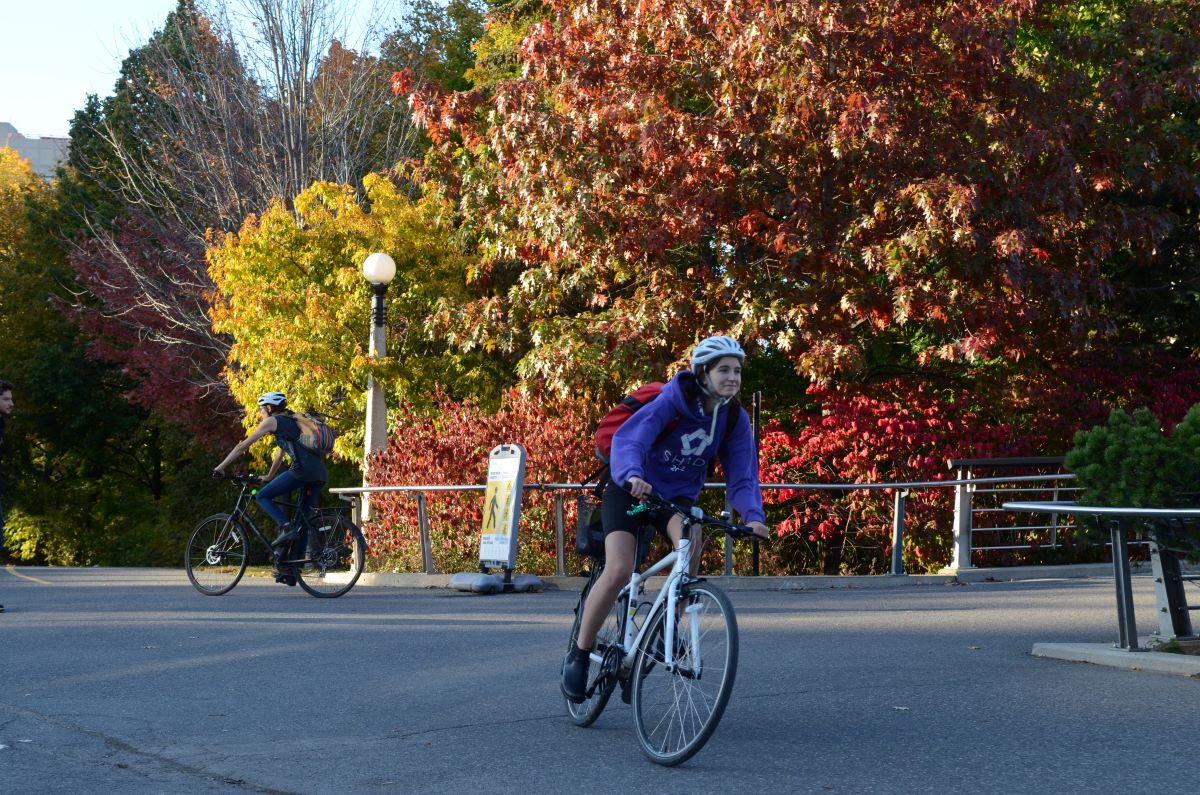Every election cycle has a hot-button issue, and this year it is bike lanes. Two of the candidates in Ottawa’s mayoral race have gone back and forth on cycling infrastructure.
Catherine McKenney’s campaign has been promising to extend bike lanes throughout the city. They intend to achieve this by spending $250 million by issuing green bonds.
“As mayor, I will transform Ottawa into one of the best cities in the world for cycling,” McKenney said.
Mark Sutcliffe, another prominent mayoral candidate, has opposed McKenney’s plan.
“Ottawa needs transportation priorities that work for them. Whether you’re getting groceries, taking your kids to school, getting to the community centre for hockey practice, bike lanes aren’t going to help you with that,” said Sutcliffe.
Sutcliffe has instead promised to spend $100 million on road maintenance.
According to Ottawa Insight, a project that collects local data, 2.5 per cent of commuters in Ottawa chose cycling as their method of choice to travel.
“It gives me much more independence than transit, it’s faster than walking and I don’t have a driver’s license. It’s also so much more fun,” said Christiane Wilke, an Ottawa resident who uses a bicycle as her main mode of transportation.
“We need to have a serious discussion about turning some of the mid-20th century scenic parkways into scenic bikeways: Queen Elizabeth Drive, Colonel By Drive and Sir John A. Macdonald Parkway, for example,” said Wilke. “Collisions become less likely if cyclists have space that cars can’t encroach on, and collisions become less severe when the speeds at which cars can go are lower.”
Andrea Emery, an Algonquin College professor of graphic design who uses a bike to get to school, echoed the sentiment.
“We need more protected bike lanes and pathways specifically for bikes. There has been an increase in cyclists since the pandemic with more people embracing the sport. Which is great. Our multi-use pathways are busier than ever with walkers, runners and cyclists. We need to prioritize bikes over cars for our city,” said Emery.
“Catherine McKenney has vowed to transform Ottawa into one of the best cycling cities in the world,” explained Emery. “Since they spend a good deal of time on their bike and in our communities, they are aware of the cycling infrastructure. I think their green bond plan is exciting and I hope they get the opportunity to implement it.”
Rodd Heino who used his bike as his main mode of transportation for more than 30 years explained his challenges while cycling.
“The biggest difficulties are the cars. Other road users make using a bike very stressful if you don’t choose your route carefully. The weather can be a challenge, too,” said Heino. “I am excited to see Catherine McKenney’s platform and I’m encouraged by the fact that they see the bigger picture. More facilities for cycling means more people on bikes.”
According to the Ottawa Road Safety Report, two cyclists died in 2020 due to road collisions, compared to four in 2019.
The Prince of Wales Drive and West Hunt Club Road intersection and Hunt Club Road and Riverside Drive intersection each had 32 collisions in 2020, making them tied for the intersections with the most collisions that year.


